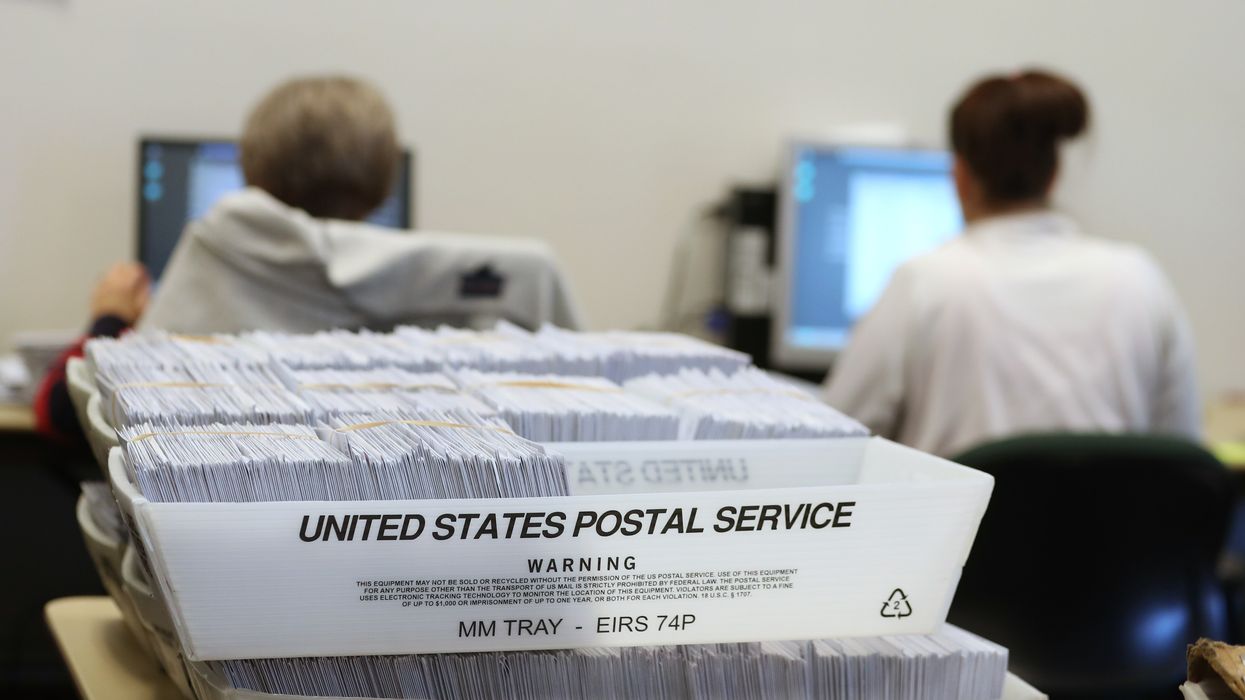A legal and public relations fight over switching New Mexico's primaries to vote-by-mail is quickly becoming the hottest new partisan standoff over elections during the deadly spread of Covid-19.
The state's balance of political power is the opposite of Wisconsin, where citizens donned masks and rubber gloves to protect them from the coronavirus and went to their polling places this week at the insistence of the Republicans in charge of both the courts and the state capital.
Now, law firms aligned with national Republicans have joined the state GOP in suing to stop plans to send absentee ballots to almost 1 million New Mexicans in time for the June 2 election. The Democrats who control the government are fighting back at the state Supreme Court, and their chances look decent because it too is dominated by liberals.
With Joe Biden now unopposed, the fight is no longer important in the Democratic presidential contest. But the outcome will influence turnout in dozens of races for both parties' nominees for the Legislature and Congress, particularly a hard-fought contest for the open House seat centered on Santa Fe.
Moreover, it will help decide which side gets momentum in the suddenly pitched battle over expanding the use of absentee ballots to make voting safer during the pandemic.
Democracy reformers, voting rights groups and their Democratic allies in Congress thought they had gained an edge in the public health emergency's early going, confident they could secure more after winning $400 million for states to expand vote-by-mail in last month's economic rescue package.
But President Trump, even though he voted absentee in both 2016 and 2018, has come out vigorously this week against any broad expansion of the practice, labeling it "very dangerous," "corrupt" and an invitation to help "cheaters" without offering evidence.
Universal mail voting "shouldn't be allowed!" he tweeted Wednesday evening, as both sides in the New Mexico dispute filed legal briefs and took to the microphones to make their cases
Clerks for 27 of the state's 33 counties have asked for permission to hold the primaries by sending absentee ballots to all voters registered with a political party and then restricting in-person voting locations to the disabled and non-English speakers. (Independents may not vote in the state's partian contests.)
Democratic Secretary of State Maggie Toulouse Oliver backs the plan, but the GOP wants to keep 100 polling places open across the state and limit the clerks to sending vote-by-mail request forms that would need to be submitted a week before the primary.
"Well, if you have bothered to go to the Walmart or the supermarket during these times, I suspect that the crowd there is just as dense as it would be at any single polling place," GOP Chairman Steve Pearce, a former congressman, t old the Santa Fe New Mexican.
"By trying to block us from doing the right thing for the voting public, they are basically saying it's better to put people's lives at risk than to do it a different way, and I think that's shameful," Toulouse Oliver replied.
Common Cause, the League of Women Voters, the American Civil Liberties Union and other voting rights groups filed briefs by Wednesday's deadline supporting the mail-in plan. The Democrat-dominated state Supreme Court will hear arguments by teleconference Tuesday.
One question is whether the switch would require approval of the solidly Democratic Legislature. While such an outcome would be assured politically, it could be extremely difficult to achieve in time, practically, because the lawmakers' annual session has ended and they don't have clear permission under state law to cast votes for legislation without being in the capital.
Two years ago Democrats won back the governor's office, secured all statewide elected offices and reinforced their majorities at the statehouse and Supreme Court. They also took a seat in Congress away from the GOP, so all five members of the state's delegation are now Democrats.,




















